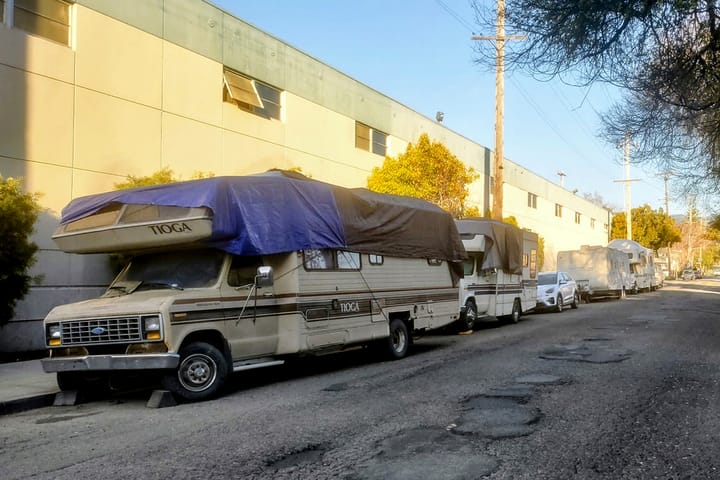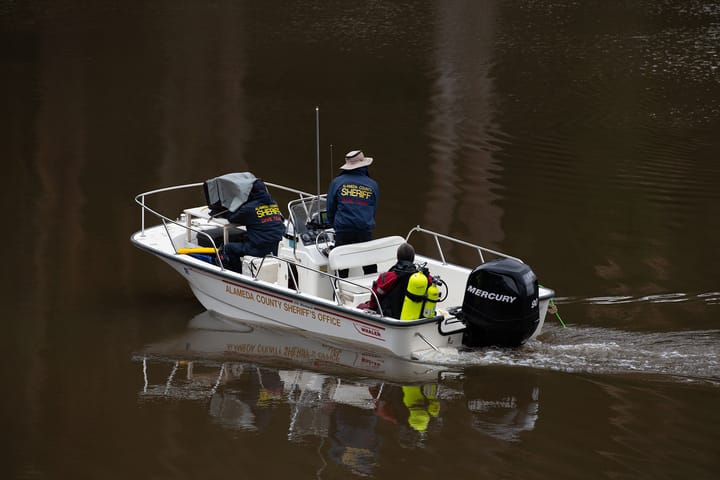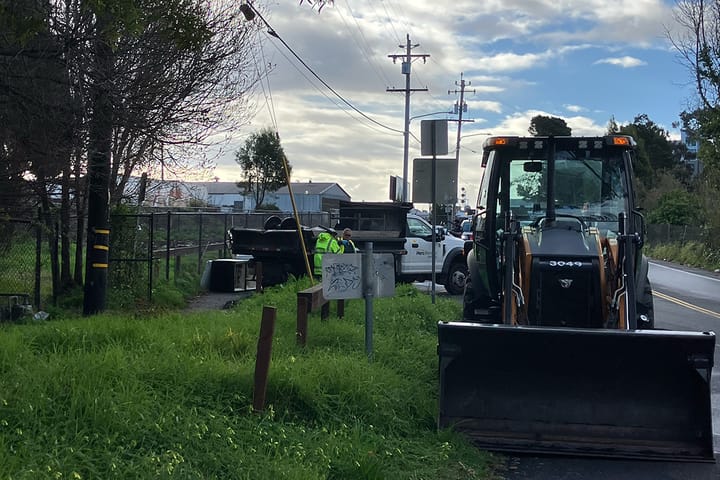Berkeley police surveillance camera plans are back on track
City officials spent nearly two hours grilling police and Flock Safety about data security and data-sharing Tuesday night.
A plan to install city surveillance cameras to help Berkeley police solve crime is back online after a near-unanimous City Council vote this week.
If all goes well, Berkeley police said, the cameras could be up and running by the end of the year.
Berkeley officials originally approved the surveillance camera program in 2023 but it has been stuck in the planning stages, largely pending Caltrans and PG&E approvals related to the camera locations.
In the meantime, Berkeley police decided to swap vendors and equipment, to Flock Safety’s solar-powered Condor cameras, which they said would be an improvement on several fronts.
BPD also shifted its focus for priority locations to busy pedestrian areas, including intersections where serious and violent crime has happened in Berkeley.
The new plan features 16 cameras — at a total estimated cost of $80,000 per year — with four more cameras possible down the line.
(On the map at the top of this story, new cameras are shown in green, future locations are marked in yellow and existing cameras are in blue.)
The new surveillance cameras are separate from BPD's existing license plate reader (ALPR) system, which is also run by Flock but has a different purpose.
The ALPR system alerts police when cars linked to felony crimes come into the city. Those alerts include real-time license plate data rather than video footage.
The surveillance camera system, which captures video but no audio, is more of an investigative tool often used after the fact, sometimes months later, to run down leads and evidence, BPD said Tuesday night.
City officials spent nearly two hours grilling Berkeley police and Flock Safety about data security and data-sharing, particularly given heightened concerns about federal oversteps and the shifting landscape around immigration and reproductive rights.
Mayor Adena Ishii and Councilman Igor Tregub suggested several adjustments to the item, which were accepted by their colleagues, such as tweaks to the existing twice-yearly audits as well as "additional safeguards," including language from the Police Accountability Board to limit system access and data sharing.
The only real sticking point among officials Tuesday night was whether to maintain the 180-day video retention period approved previously by council or reduce it to 30 days, in line with a Police Accountability Board recommendation and the view of a dozen or so activists who spoke during public comment, citing concerns about ICE, privacy and misuse by the federal government.
"Given the aggressive activity of the Trump administration employing masked agents in unmarked vehicles accosting people in public spaces, such surveillance can have unintended and unforeseen effects," one woman wrote, in an email to council before the meeting. "Please do not install these proposed surveillance cameras."
Ultimately, officials said they believed the policy had appropriate safeguards in place and were convinced by the police chief's arguments about the need for a longer retention period, which included the delayed reporting of serious crimes, including sex crimes and police misconduct; belated statements from reluctant witnesses, including in homicide cases; and protracted response times from labs that process physical evidence, including DNA.
"Having that information retained for a longer period of time allows us to build those cases," BPD Chief Jen Louis told city officials before the vote. "And, from the DA's office, they've shared that they consistently utilize video evidence, and it's not only to establish suspect presence, but corroborate witness testimony and strengthen case narratives."
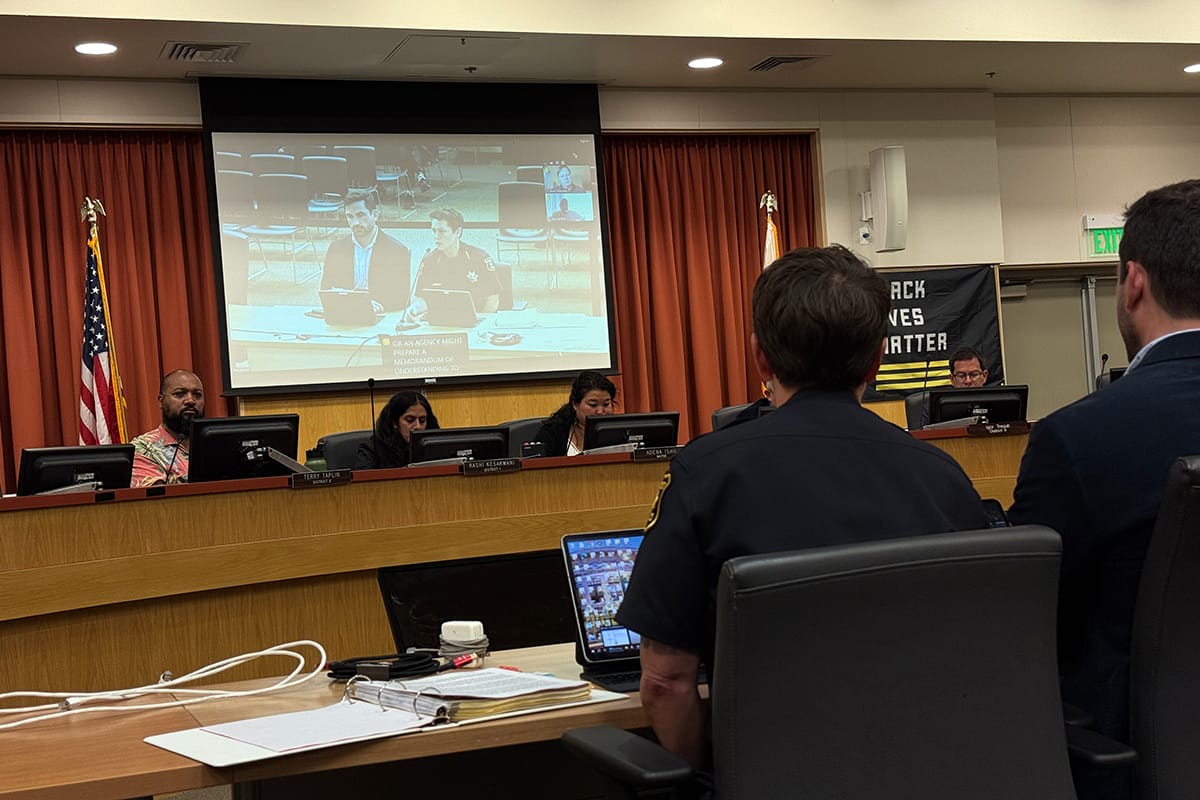
Southside Councilwoman Cecilia Lunaparra, who was ultimately the lone no vote on the surveillance camera item, called Berkeley's retention period "unusually long," and said nearby cities, including San Jose, Oakland, San Francisco, Fremont, Albany and San Leandro, all have retention periods that run from 15 to 90 days, "with possible extensions for criminal investigations."
Chief Louis acknowledged there can be a range, but said her recommendation — which council established previously after robust discussions — was based not only on her research and feedback from the DA's office but on the expertise of her detectives.
"What I rely heavily on is our very tenacious investigative team — that has a 100% closure rate for homicides. And I want to do everything I can to ensure that they have the ability to investigate cases and bring those who do harm to our community members to justice," she said. " I want to give our investigators a fighting chance to build those cases."
Lunaparra said she appreciated the department's efforts to address the concerns, but said the larger context still gave her pause.
"We cannot be naive if we want this kind of technology," she said. "If the Trump administration were granted a subpoena or judicial warrant to access Berkeley surveillance footage, the city would not be able to refuse. The only leverage our city has is if the data were to not exist at all, or if it were to be automatically purged within a shorter footage-retention period."
In the end, the City Council as a whole said they saw the program as a win.
Officials also noted the importance of the cameras as Berkeley continues to struggle with a police staffing crisis and works to embrace tools that could limit potential disparities in policing.
" As someone whose district includes a number of the city's gunfire corridors and high-injury corridors, the utility for these tools to help the city address the investigation of violent crimes, especially gun crimes, to me, is of dire importance," said West Berkeley Councilman Terry Taplin. " I appreciate the level of reporting the department's being asked to do [and] the strength and severity of the safeguards."
Other council members agreed.
Berkeley Hills Councilman Brent Blackaby said, so far, Flock cameras in Berkeley seem to be working, adding that he was particularly in favor of the updated security camera program given the extra safeguards put forward Tuesday night.
"I think they will help give our community additional confidence," he said. "The whole name of the game here is trying to appropriately balance the public safety improvements with the potential privacy risks."
South Berkeley Councilman Ben Bartlett called the city's updated language " best in class," and said Flock's ALPR cameras had already been used in his district to catch a driver who reportedly fled after hitting a father and child in the crosswalk.
"I do believe in it as the future of law enforcement," Bartlett said. "There also is a definite, absolute need to maintain our individual liberties and our constitutional rights in the face of an evolving federal context."
The new Flock contract is expected to come back to City Council in the fall with the surveillance camera program to ramp up in the months that follow.
More Berkeley City Council coverage
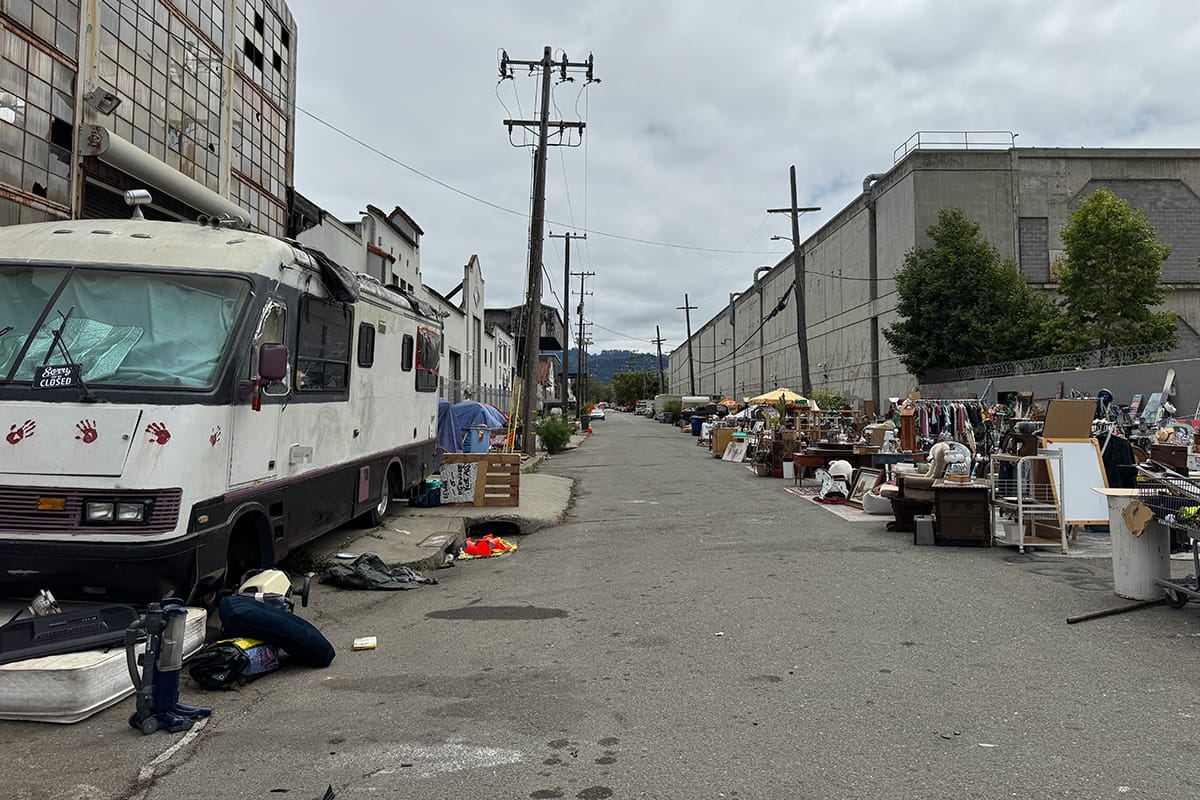
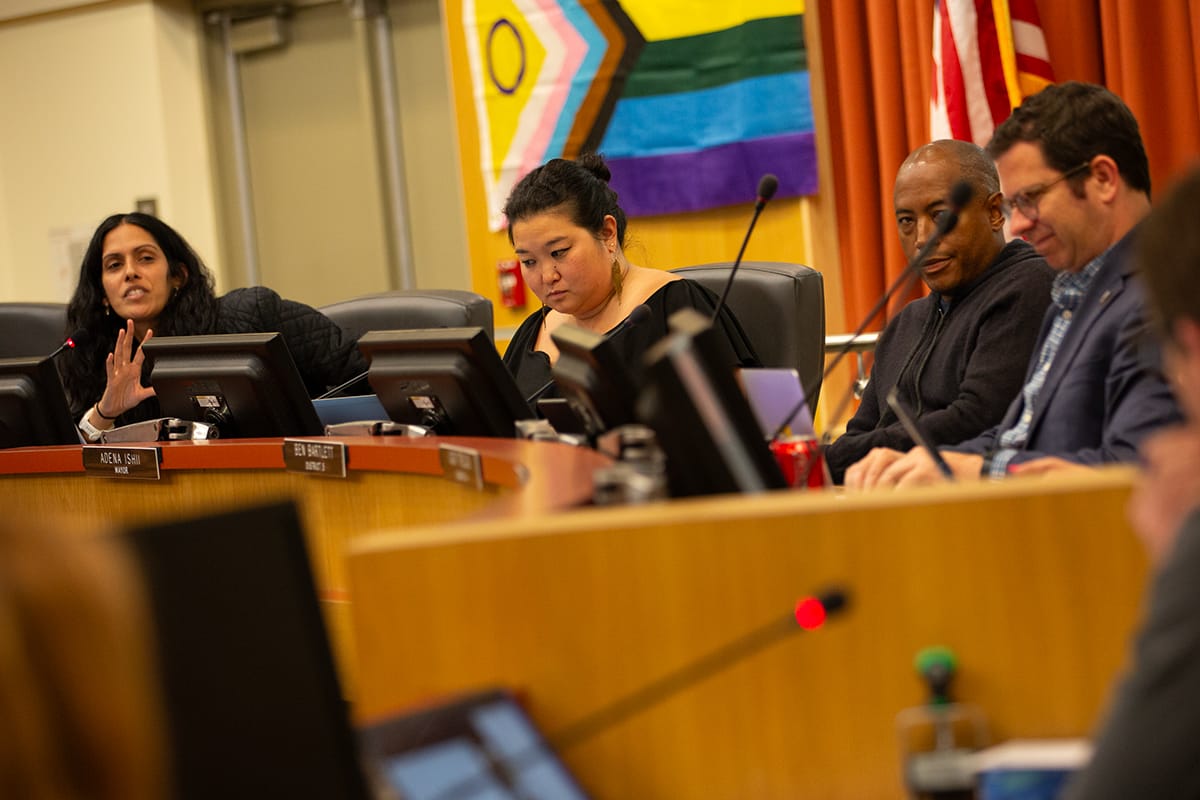
Clarification: BPD was already required to do twice-yearly audits in relation to this work. Tuesday's vote made some adjustments to the process. This story has been fixed.




